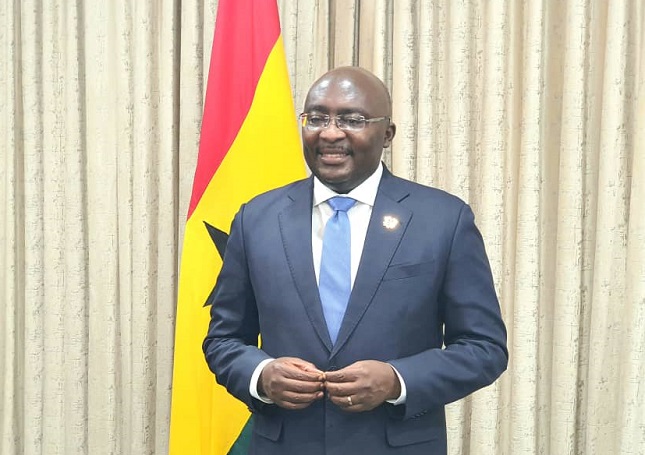
- Dr Joshua Jebuntie Zaato, a political science lecturer at the University of Ghana, praised Dr Mahamudu Bawumia’s leadership potential.
- He said Bawumia has the competence and experience to lead Ghana after President Mahama.
- Dr Zaato believes no one in the NDC, except Mahama, can match Bawumia’s capability.
- His comments follow a Global Info Analytics survey showing that 57% of Ghanaians prefer Bawumia to lead the NPP in 2028.
- The same poll noted a slight dip in his popularity among NPP delegates as the January 2026 primaries approach.
University of Ghana political science lecturer, Dr Joshua Jebuntie Zaato, has voiced strong confidence in former Vice President Dr Mahamudu Bawumia’s ability to steer Ghana’s leadership after the tenure of President John Dramani Mahama.
Speaking on TV3’s The Key Points on Saturday, October 4, Dr Zaato described Dr Bawumia as the most competent and experienced among all potential presidential hopefuls across both major political parties. He noted that, aside from Mahama, no figure within the opposition National Democratic Congress (NDC) matches Bawumia’s readiness for national leadership.
According to Dr Zaato, the former Vice President’s track record in public service and his grasp of economic governance make him a strong contender for the presidency in 2028. He further expressed certainty that Ghana would be “in safe hands” if led by Bawumia.
His endorsement follows new data from Global Info Analytics, which revealed that 57 percent of Ghanaians favor Bawumia as the ideal flagbearer for the New Patriotic Party (NPP). The survey highlighted his broad public appeal but also pointed to a slight decline in delegate enthusiasm as the party’s primaries draw nearer.
As the political climate heats up ahead of the 2028 elections, Bawumia’s camp continues to gain momentum, with several figures within academia and politics predicting that his blend of experience and technocratic background could resonate with both grassroots supporters and urban voters.
Reflective Opinion
Dr Zaato’s confidence in Dr Bawumia’s leadership potential reflects a growing perception among political observers that Ghana’s electorate is shifting toward candidates with technocratic credibility and proven experience. Bawumia’s tenure as Vice President, particularly his involvement in digitalization reforms and economic policy, has positioned him as a symbol of modern governance — at least in theory.
However, translating administrative expertise into political success is no easy feat. While surveys may indicate public favor, Bawumia still faces the complex challenge of uniting a party recovering from electoral fatigue and internal divisions. The waning enthusiasm among NPP delegates noted in the poll could be an early warning sign of the hurdles ahead.
It also raises an important question: do Ghanaians vote more on sentiment and party loyalty, or on competence and policy credibility? Dr Zaato’s endorsement emphasizes merit and experience, but Ghana’s political culture often rewards emotional connections and populist appeal over technocratic strength.
As 2028 approaches, Bawumia’s greatest test may not just be convincing Ghanaians that he can lead — but proving that his brand of leadership can inspire the kind of trust and unity needed to govern effectively in a deeply polarized political landscape.